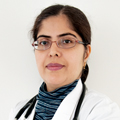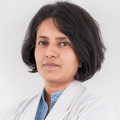
Pulmonology
Pulmonology refers to a medical speciality that deals with diseases involving the respiratory tract. It is often known as chest medicine and respiratory medicine in some countries and areas. Pulmonology is considered to be a branch of internal medicine and is related to intensive care medicine. Pulmonology commonly involves managing patients who need life support and mechanical ventilation. Pulmonologists are specially trained in diseases as well as conditions of the chest, particularly pneumonia, tuberculosis, asthma, emphysema, and complicated chest infections.
History of Pulmonology:
One of the significant discoveries relevant to the field of pulmonology was the discovery of pulmonary circulation. Initially, it was thought that blood which reaches the right side of the heart passed through small 'pores' in the septum into the left-hand side to be oxygenated. But the discovery of pulmonary circulation disproves this theory, which had previously been accepted since the 2nd century. 13th-century anatomist and physiologist Ibn Al-Nafis accurately theorised that there was no 'direct' passage between the two sides (ventricles) of the heart. He believed that blood passes through the pulmonary artery, through the lungs, and back into the heart to be pumped around the body. This is recognised to be the first scientific description of pulmonary circulation.
Treatment and therapeutics:
Medication refers to the most important treatment of most diseases of pulmonology, either by inhalation (steroids and bronchodilators) or in oral form. One of the typical examples is the usage of inhalers in the treatment of irritant lung conditions similar to chronic obstructive pulmonary disease or asthma. Oxygen therapy is necessary for severe respiratory disease (emphysema and pulmonary fibrosis). When this becomes insufficient, the patient might require mechanical ventilation.
Procedures used in Pulmonology:
- Laboratory investigation of blood, known as blood tests. Sometimes arterial blood gas measurements are also needed.
- Spirometry: The determination of maximal airflow at a specific lung volume as measured by breathing into a dedicated machine; this is one of the key tests which helps to diagnose airflow obstruction.
- Pulmonary Function Tests: Spirometry, as well as response to lung volumes, bronchodilators and diffusion capacity, a measure of lung oxygen absorptive area
- Bronchoscopy with bronchoalveolar lavage (BAL), endobronchial as well as transbronchial biopsy
- X-rays of chest
- Scintigraphy and other methods of nuclear medicine
- CT scanning
- Positron emission tomography
- Polysomnography commonly used for the diagnosis of Sleep apnea
What's the best place for Pulmonology?
India is acknowledged as one of the best destinations for Pulmonology. Indian hospitals offer a Healthy Living Program that is described as an “immersive wellness” experience, encompassing exercise, nutrition and mind-body practices. Moreover, its cost is much inexpensive as compared to the rest of the countries.


Top Doctors For Pulmonology
Top Hospitals For Pulmonology






